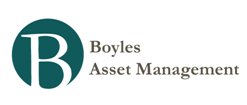Money and Finance
- Prospect Magazine Interviews Tim Harford
Link to interview: Big data, bad prophets and Brian Cox: An interview with Tim HarfordYou write about economics for a wide audience, is that because you believe there’s some benefit in wider economic literacy? I do, but I also just find it fascinating....
- Jim Grant Lecture: Hazlitt, My Hero
The Henry Hazlitt Memorial Lecture, sponsored by James Rodney. Recorded at the 2014 Austrian Economics Research Conference in Auburn, Alabama, on 20 March 2014. Includes an introduction my Joseph T. Salerno. Link [H/T Mises] ................ Related...
- George Soros' Remarks At The Festival Of Economics, Trento Italy
Ever since the Crash of 2008 there has been a widespread recognition, both among economists and the general public, that economic theory has failed. But there is no consensus on the causes and the extent of that failure. I believe that the failure is...
- June 2009 Paper: “no One Saw This Coming” – By Dirk Bezemer
This paper was mentioned in Steve Keen’s new and expanded edition of Debunking Economics, which comes out in October in the U.S. I was fortunate enough to receive an advanced proof of the book, which is one that I think is going to be very important...
- Howard Marks Memo: Will It Work?
The other day, my son Andrew – college senior and credit-analyst-to-be – asked whether I think Treasury Secretary Geithner is doing the right things. As has happened before, his question elicited a fatherly response that grew into this memo. When...
Money and Finance
Complexity economics: a different framework for economic thought - by W. Brian Arthur
Abstract
This paper provides a logical framework for complexity economics. Complexity economics builds from the proposition that the economy is not necessarily in equilibrium: economic agents (firms, consumers, investors) constantly change their actions and strategies in response to the outcome they mutually create. This further changes the outcome, which requires them to adjust afresh. Agents thus live in a world where their beliefs and strategies are constantly being “tested” for survival within an outcome or “ecology” these beliefs and strategies together create. Economics has largely avoided this nonequilibrium view in the past, but if we allow it, we see patterns or phenomena not visible to equilibrium analysis. These emerge probabilistically, last for some time and dissipate, and they correspond to complex structures in other fields. We also see the economy not as something given and existing but forming from a constantly developing set of technological innovations, institutions, and arrangements that draw forth further innovations, institutions and arrangements.
Complexity economics sees the economy as in motion, perpetually “computing” itself—perpetually constructing itself anew. Where equilibrium economics emphasizes order, determinacy, deduction, and stasis, complexity economics emphasizes contingency, indeterminacy, sense-making, and openness to change. In this framework time, in the sense of real historical time, becomes important, and a solution is no longer necessarily a set of mathematical conditions but a pattern, a set of emergent phenomena, a set of changes that may induce further changes, a set of existing entities creating novel entities. Equilibrium economics is a special case of nonequilibrium and hence complexity economics, therefore complexity economics is economics done in a more general way. It shows us an economy perpetually inventing itself, creating novel structures and possibilities for exploitation, and perpetually open to response.
- Prospect Magazine Interviews Tim Harford
Link to interview: Big data, bad prophets and Brian Cox: An interview with Tim HarfordYou write about economics for a wide audience, is that because you believe there’s some benefit in wider economic literacy? I do, but I also just find it fascinating....
- Jim Grant Lecture: Hazlitt, My Hero
The Henry Hazlitt Memorial Lecture, sponsored by James Rodney. Recorded at the 2014 Austrian Economics Research Conference in Auburn, Alabama, on 20 March 2014. Includes an introduction my Joseph T. Salerno. Link [H/T Mises] ................ Related...
- George Soros' Remarks At The Festival Of Economics, Trento Italy
Ever since the Crash of 2008 there has been a widespread recognition, both among economists and the general public, that economic theory has failed. But there is no consensus on the causes and the extent of that failure. I believe that the failure is...
- June 2009 Paper: “no One Saw This Coming” – By Dirk Bezemer
This paper was mentioned in Steve Keen’s new and expanded edition of Debunking Economics, which comes out in October in the U.S. I was fortunate enough to receive an advanced proof of the book, which is one that I think is going to be very important...
- Howard Marks Memo: Will It Work?
The other day, my son Andrew – college senior and credit-analyst-to-be – asked whether I think Treasury Secretary Geithner is doing the right things. As has happened before, his question elicited a fatherly response that grew into this memo. When...

